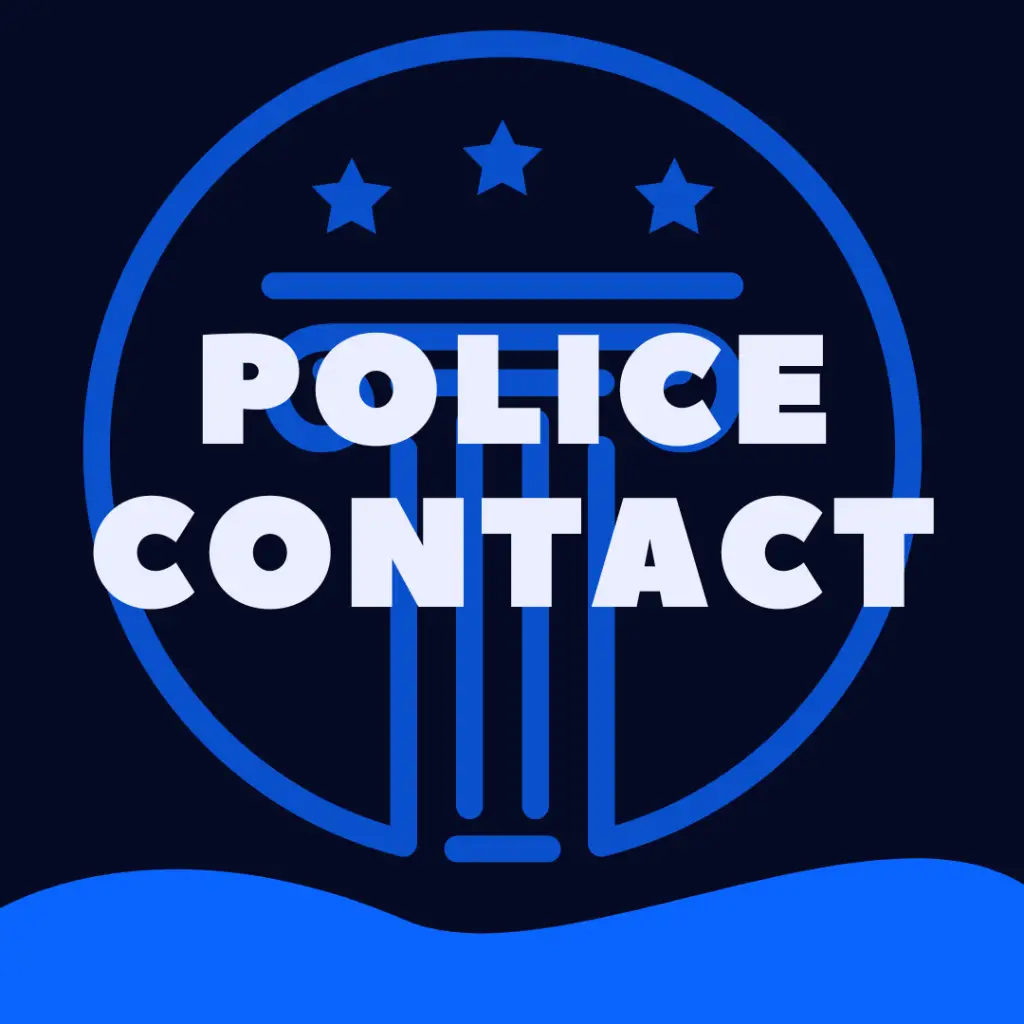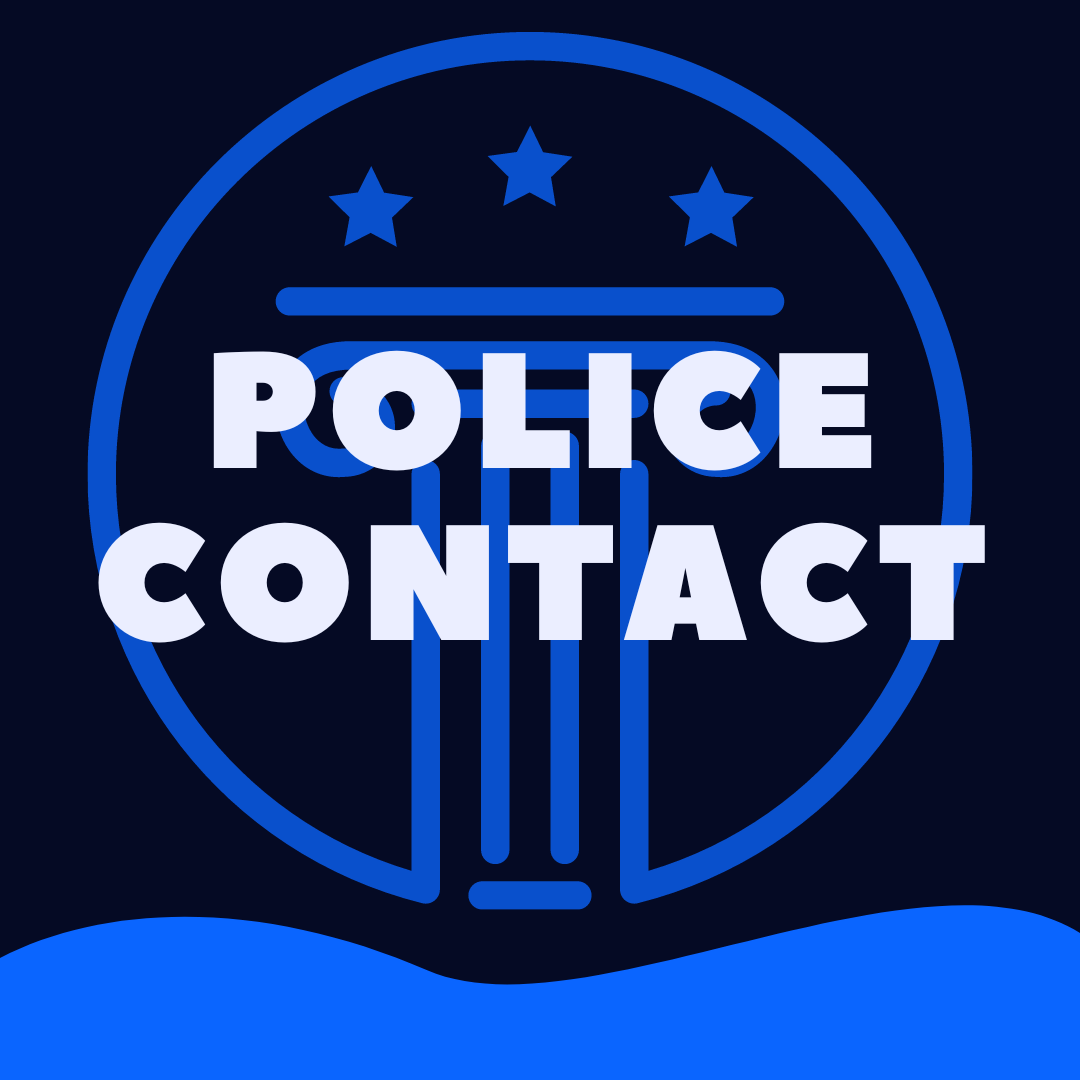Answer: there’s a few ways that probation officers can find out about a probationer’s contact with police, but it depends on the defendant’s level of supervision, the seriousness of the case, and the type of police contact.
How Do Probation Officers Find Out About Police Contact? (Explained)
Disclaimer
The contents of this web page are for informational purposes only, and nothing you read is intended to be legal advice. Please review our disclaimer about law/legal-related information on this website before taking action based upon anything you read or see.
Type of Supervision/Supervisor
Depending on where the defendant lives, there can be different levels of supervision.
There is active supervision, also called formal supervision.
This is when the office of probation is involved, and the defendant has an assigned probation officer.
There is information probation, where the court is the supervisor.
If the probation is supervised by the court, or the supervision is informal (meaning no supervisor), then it is possible that the supervisor won’t find out until someone notifies him/her/it.
The defendant is generally ordered to report any police contact within a short time frame.
But when the supervision is not active, it is possible that certain police contacts will not find their way to the court or informal supervisor.
Seriousness of the Case/Court Location
Some courts have more active supervision, while others have less.
For example, a defendant placed on supervision in municipal court is less likely to have an active supervisor or probation office, because only the more serious of cases end up with formal probation.
If there is no one actively supervising the case at the municipal court case level, a defendant’s contact with police might pass by until the defendant reports it or a police report is filed and dropped on the prosecutor’s desk.
Police Talk
When a police officer has contact with a defendant, they do a few things.
They get name and information from the individual, and may ask for identification.
This information may be called in for a warrant check or for other relevant information, such as any information confirming that the individual represents a threat to the safety of the officer.
The officer may run the information through the computer/laptop he has with him in his vehicle.
If the police officer finds out that the defendant is on supervised probation, he will generally not hesitate to send a quick note or make a phone call to the probation officer about the contact.
The law enforcement community is fairly small, even in larger populations.
There just aren’t that many police officers, and even fewer probation officers.
They know about each other’s cases, and they don’t forget names.
Automated Notifications Via Databases
In larger communities with a larger populace of individuals to monitor and police, law enforcement officers access and utilize a database to facilitate getting the information they need.
Many of these databases have an automation in place that automatically pings the probation officer if the defendant probationer’s name is checked in the system (indicating police contact).
The probation officer might not get any information about why the defendant’s name was pinged or what eventually happened, but he’ll know that the defendant had contact with law enforcement of some kind.
What To Do If a Defendant on Probation Has Contact With Law Enforcement?
The most common recommendation for the defendant is to do whatever the terms of probation state when they have contact with law enforcement.
In most cases, the terms of probation state that the defendant is required to report all police contact to the supervisor within 24 hours of the contact.
“Contact” doesn’t just mean an arrest, citation, or police report.
It could mean getting pulled over but not getting a ticket.
It could mean speaking to an officer as a witness to an unrelated matter.
It could mean being in the passenger seat when someone else was being investigated.
Reporting the contact could be in the form of a phone call, email, or even in-person report.
If the supervisor allows the defendant to email him, an email can be a reliable way to make a record that the defendant made an effort to notify the probation officer, as the email will contain the statement, as well as the date and time the notice was sent to the officer.
(An email can be useful if the defendant has to defend against allegations that he didn’t notify the probation officer within a specified amount of time.)
Depending on the case and the type of police contact, the probation officer might not find out without the defendant’s notification.
But if the probation order requires that the defendant make the disclosure, he’ll can find himself in trouble if he does nothing and the supervisor finds out about the contact and the fact that the defendant failed to make his notification.
What If The Police Contact Resulted From Conduct That Could Cause a Probation Violation or Filing of New Charges?
If there’s enough time, talking to a criminal defense attorney in advance of notifying the probation officer might assist the defendant.
The defense lawyer could talk with the defendant about how the defendant’s statements to the probation officer (and the contents) could harm his chances in a PV hearing or the new criminal case, and how best to proceed globally in his situation.
Wrap Up
Want to learn more about your criminal justice system?
Browse our free legal library guides for more information.
You might also like:
- How Do Probation Officers Find Out About Police Contact?
- Tips For Living With Someone On Parole
- Can You Be On Parole and Probation at the Same Time?
- Can a Probation Officer Tell You Who You Can Date?
- Can a Probation Officer Separate a Husband and Wife?
- Why Would a Probation Officer Call You?
- Can Probation Officers Read Your Text Messages?
- Can Probation Officers Look At Your Facebook?
- Can My Probation Officer Find Out If I Left The State?
- Can a Probation Officer Change Your Conditions?



